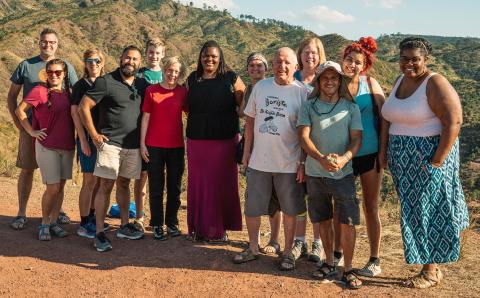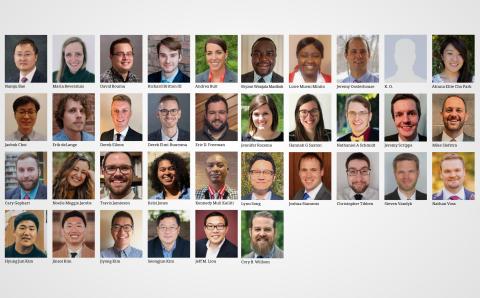One day a biology professor at my university emailed me to ask if I was familiar with Genesis. “That’s odd,” I thought. I replied that I was, and I’d be happy to talk about it with him.
I remember our first meeting vividly. We chatted over coffee about what gave rise to his interest in Genesis. He explained that each year he has Christian students who challenge him with their understanding of Genesis (what’s often called “young earth creationism”). He explained that he’d never read Genesis, and as an atheist he was reluctant to do so. But, he told me, he didn’t feel he could engage in those discussions because of his lack of personal engagement with Genesis.
I gave him a Bible and told him we could read it together and discuss it if he wanted. He read Genesis 1—for the first time in his life—and when he finished there were tears streaming down his face. “That’s the most beautiful thing I’ve ever read,” he said.
Can we still read the oldest stories in the Bible today? Of course we can! But we need to read them as they were intended to be read. The oldest stories in the Bible were not written from a scientific perspective, and when we force them to operate that way they become dull, flat, and simplistic. But if we read them as ancient wisdom that probes the deepest metaphysical questions of existence, they come alive with dynamic and imaginative power that opens up all kinds of conversations.
Since the dawn of the Enlightenment and the scientific revolution, Christians have mistakenly felt that the only way to retain the authority of Scripture is to make Scripture fit into a scientific paradigm of what counts as truth. But in my experience of bearing witness to the gospel on a public university campus, contemporary people (atheists, agnostics, and theists/believers) are profoundly interested in these ancient biblical stories even if we don’t share the same view of Scripture’s authority or inspiration.
Especially so with the most ancient stories, the Bible invites us into a (pre-scientific) world that is multilayered, richly textured, and existentially impactful. When we allow Scripture to dig deep into our imaginations, it can reveal things about ourselves, about our world, and about life that we would never encounter by more didactic or rational means.
The more secular voices in North American society today seem to be under the impression that the Bible is on its way to obscurity in the modern world. It’s almost as if some believe that the Bible is outdated and superstitious, while science gives us a more solid way of thinking.
But one of the greatest cultural phenomena over the past couple of years has been a relatively unknown Canadian university professor reflecting on the psychological significance of the ancient biblical stories. Those videos have been viewed many millions of times and have sparked a general interest in the persistent relevance of the Bible for life today.
The reason for the surprisingly high level of curiosity among unbelievers is the same as that of the biology professor who emailed me out of the blue one day. That email turned into a yearlong series of weekly meetings of reading and discussing together the opening 11 chapters of Genesis—words he’d never read before.
When we finished with Genesis, we moved on to Mark’s gospel. In the end, it was the oldest stories in the Bible that opened the door to this biology professor’s conversion to faith in Jesus.
About the Author
Michael Wagenman is the Christian Reformed campus minister at Western University in London, Ont., where he invites undergraduate students to put their faith into loving service and mentors graduate students. His most recent book is The Power of the Church: The Sacramental Ecclesiology of Abraham Kuyper (Wipf &Stock, 2020).








